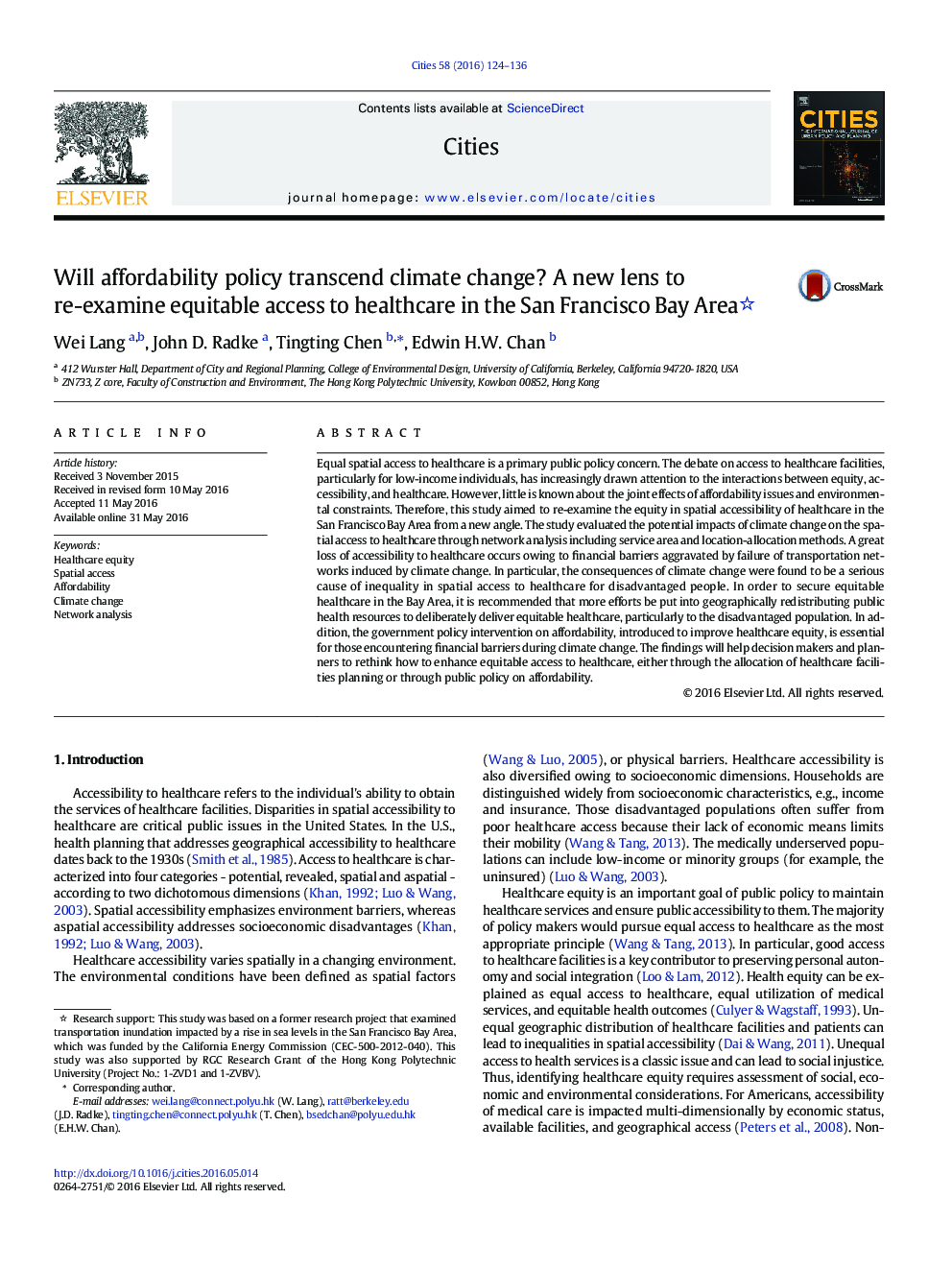| Article ID | Journal | Published Year | Pages | File Type |
|---|---|---|---|---|
| 7417976 | Cities | 2016 | 13 Pages |
Abstract
Equal spatial access to healthcare is a primary public policy concern. The debate on access to healthcare facilities, particularly for low-income individuals, has increasingly drawn attention to the interactions between equity, accessibility, and healthcare. However, little is known about the joint effects of affordability issues and environmental constraints. Therefore, this study aimed to re-examine the equity in spatial accessibility of healthcare in the San Francisco Bay Area from a new angle. The study evaluated the potential impacts of climate change on the spatial access to healthcare through network analysis including service area and location-allocation methods. A great loss of accessibility to healthcare occurs owing to financial barriers aggravated by failure of transportation networks induced by climate change. In particular, the consequences of climate change were found to be a serious cause of inequality in spatial access to healthcare for disadvantaged people. In order to secure equitable healthcare in the Bay Area, it is recommended that more efforts be put into geographically redistributing public health resources to deliberately deliver equitable healthcare, particularly to the disadvantaged population. In addition, the government policy intervention on affordability, introduced to improve healthcare equity, is essential for those encountering financial barriers during climate change. The findings will help decision makers and planners to rethink how to enhance equitable access to healthcare, either through the allocation of healthcare facilities planning or through public policy on affordability.
Related Topics
Social Sciences and Humanities
Business, Management and Accounting
Tourism, Leisure and Hospitality Management
Authors
Wei Lang, John D. Radke, Tingting Chen, Edwin H.W. Chan,
